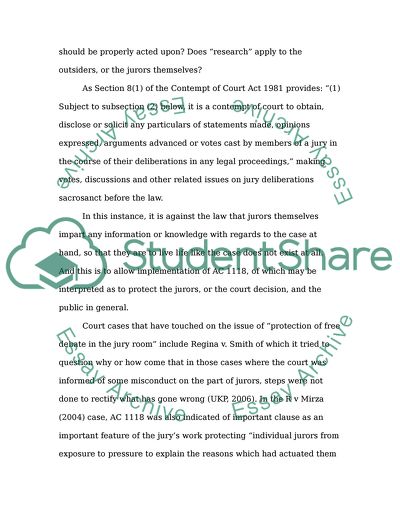Cite this document
(“Jury Deliberation Essay Example | Topics and Well Written Essays - 2000 words”, n.d.)
Retrieved from https://studentshare.org/law/1514169-jury-deliberation
Retrieved from https://studentshare.org/law/1514169-jury-deliberation
(Jury Deliberation Essay Example | Topics and Well Written Essays - 2000 Words)
https://studentshare.org/law/1514169-jury-deliberation.
https://studentshare.org/law/1514169-jury-deliberation.
“Jury Deliberation Essay Example | Topics and Well Written Essays - 2000 Words”, n.d. https://studentshare.org/law/1514169-jury-deliberation.


